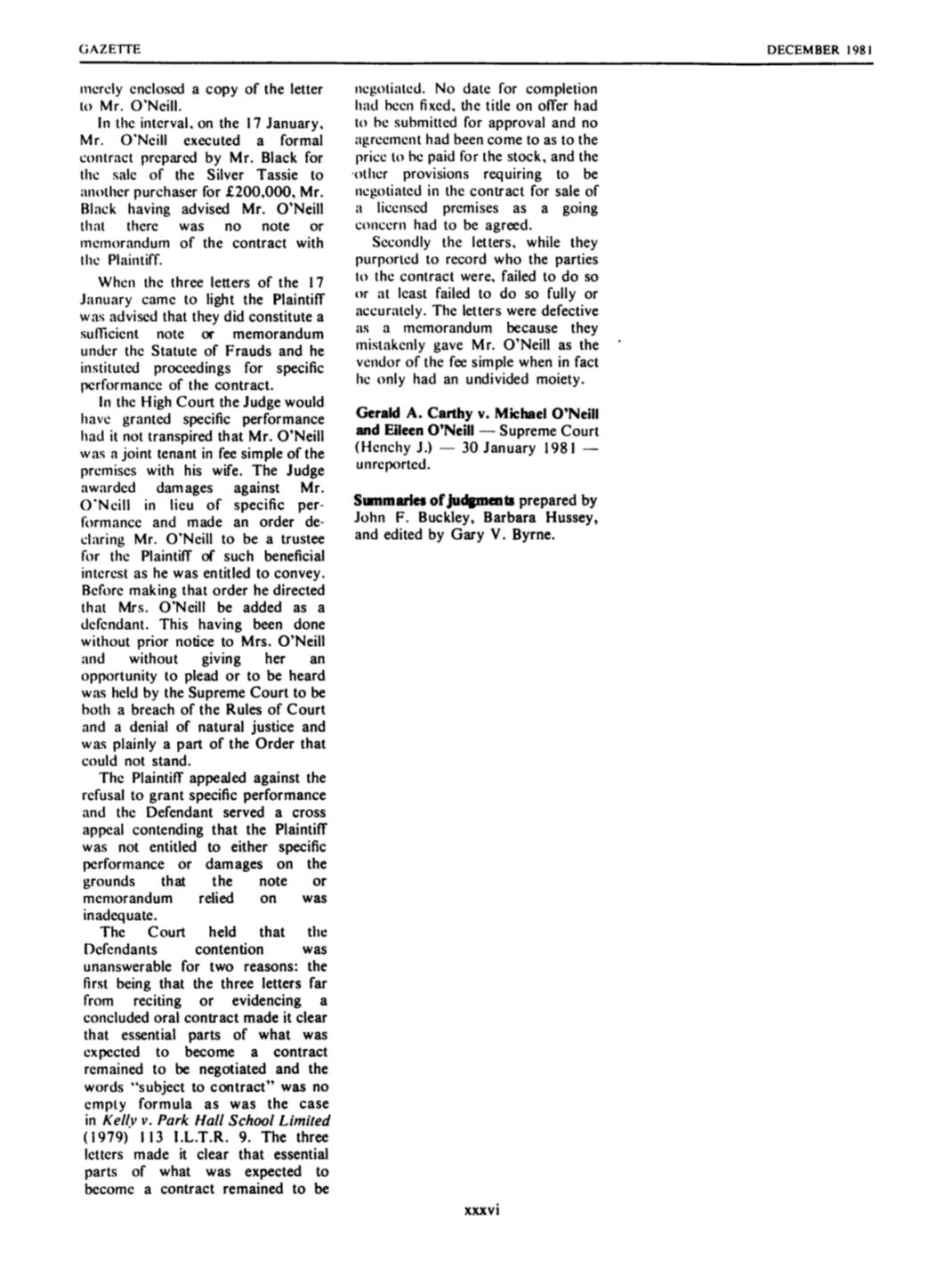

GAZETTE
DECEMBER 1981
merely enclosed a copy of the letter
to Mr. O'Neill.
In the interval, on the 17 January,
Mr. O'Neill executed a formal
contract prepared by Mr. Black for
the sale of the Silver Tassie to
another purchaser for £200,000, Mr.
Black having advised Mr. O'Neill
that there was no note or
memorandum of the contract with
the Plaintiff.
When the three letters of the 17
January came to light the Plaintiff
was advised that they did constitute a
sufficient note or memorandum
under the Statute of Frauds and he
instituted proceedings for specific
performance of the contract.
In the High Court the Judge would
have granted specific performance
had it not transpired that Mr. O'Neill
was a joint tenant in fee simple of the
premises with his wife. The Judge
awarded damages against Mr.
O'Neill in lieu of specific per-
formance and made an order de-
claring Mr. O'Neill to be a trustee
for the Plaintiff of such beneficial
interest as he was entitled to convey.
Before making that order he directed
that Mrs. O'Neill be added as a
defendant. This having been done
without prior notice to Mrs. O'Neill
and
without
giving
her
an
opportunity to plead or to be heard
was held by the Supreme Court to be
both a breach of the Rules of Court
and a denial of natural justice and
was plainly a part of the Order that
could not stand.
The Plaintiff appealed against the
refusal to grant specific performance
and the Defendant served a cross
appeal contending that the Plaintiff
was not entitled to either specific
performance or damages on the
grounds
that
the
note
or
memorandum
relied
on
was
inadequate.
The
Court
held
that
the
Defendants
contention
was
unanswerable for two reasons: the
first being that the three letters far
from reciting or evidencing a
concluded oral contract made it clear
that essential parts of what was
expected to become a contract
remained to be negotiated and the
words "subject to contract" was no
empty formula as was the case
in
Kellv v. Park Hall School Limited
(1979) 113 I.L.T.R. 9. The three
letters made it clear that essential
parts of what was expected to
become a contract remained to be
negotiated. No date for completion
had been fixed, the title on offer had
to be submitted for approval and no
agreement had been come to as to the
price to be paid for the stock, and the
other provisions requiring to be
negotiated in the contract for sale of
a licensed premises as a going
concern had to be agreed.
Secondly the letters, while they
purported to record who the parties
to the contract were, failed to do so
or at least failed to do so fully or
accurately. The letters were defective
as a memorandum because they
mistakenly gave Mr. O'Neill as the
vendor of the fee simple when in fact
he only had an undivided moiety.
Gerald A. Carthy
v.
Michael O'Neill
and Eileen O'Neill
— Supreme Court
(Hcnchy J.) — 30 January 1981 —
u nrcported.
Summaries of Judgments
prepared by
John F. Buckley, Barbara Hussey,
and edited by Gary V. Byrne.
xxxvi














